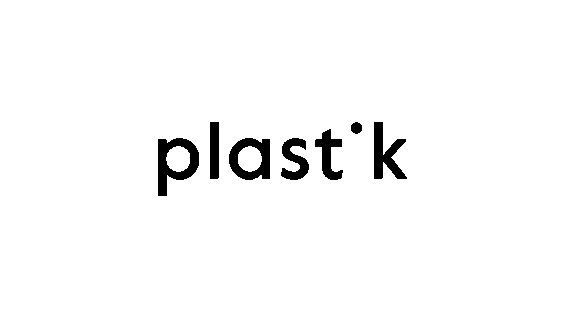victor nouman: the art of virtual mythology
spanish - syrian architect and digital artist victor nouman is the co-founder of dune studios based in both dubai and madrid. he has a knack for finding a narrative where all things traditional and experimental collide. his work, notably utopic arabia, aptly captures the quintessence of the flourishing arab renaissance, which continues to make an indelible mark on the international art scene. rather than juxtaposing or contrasting the old with the new or the artistic and the technological, nouman’s sweet spot is finding their synergy in a world growing increasingly bored with binaries, and from the perspective of a region that advances towards the future while rooting itself in the past.
what’s it like to be an artist in the arab world these days?
a few years back, in dubai, art was lacking some context, but it has evolved a lot since then. nowadays, the arab world is booming and taking over the art scene. everybody is coming to the region and letting go of their preconceptions. there is a much deeper understanding of arab culture as it gains in popularity thanks to its mix of international design and local traditions, which gives the region a unique edge.
technology and innovation have been traditionally attributed to the west or far east asia, yet the arab world is now at the forefront. dubai’s expo 2020, diriyah biennale and the creation of futuristic cities such as neom come to mind... is the future arab?
yes, for sure. i think the arab world is taking over because it is not afraid of doing new things, but also because it identifies and attracts the best in all fields from around the world by creating a super comfortable space for them to live and work in. it gives them everything they need to do great things for both themselves and the region. the future is arab, and i’m very happy about it.
the arab world is often depicted as traditional and conservative. can technology and tradition coexist?
the traditional is an integral part of the culture, and that’s what makes it special. people here are strongly connected to their traditions while also leading a very contemporary lifestyle. they are not afraid of change. i love that mix.
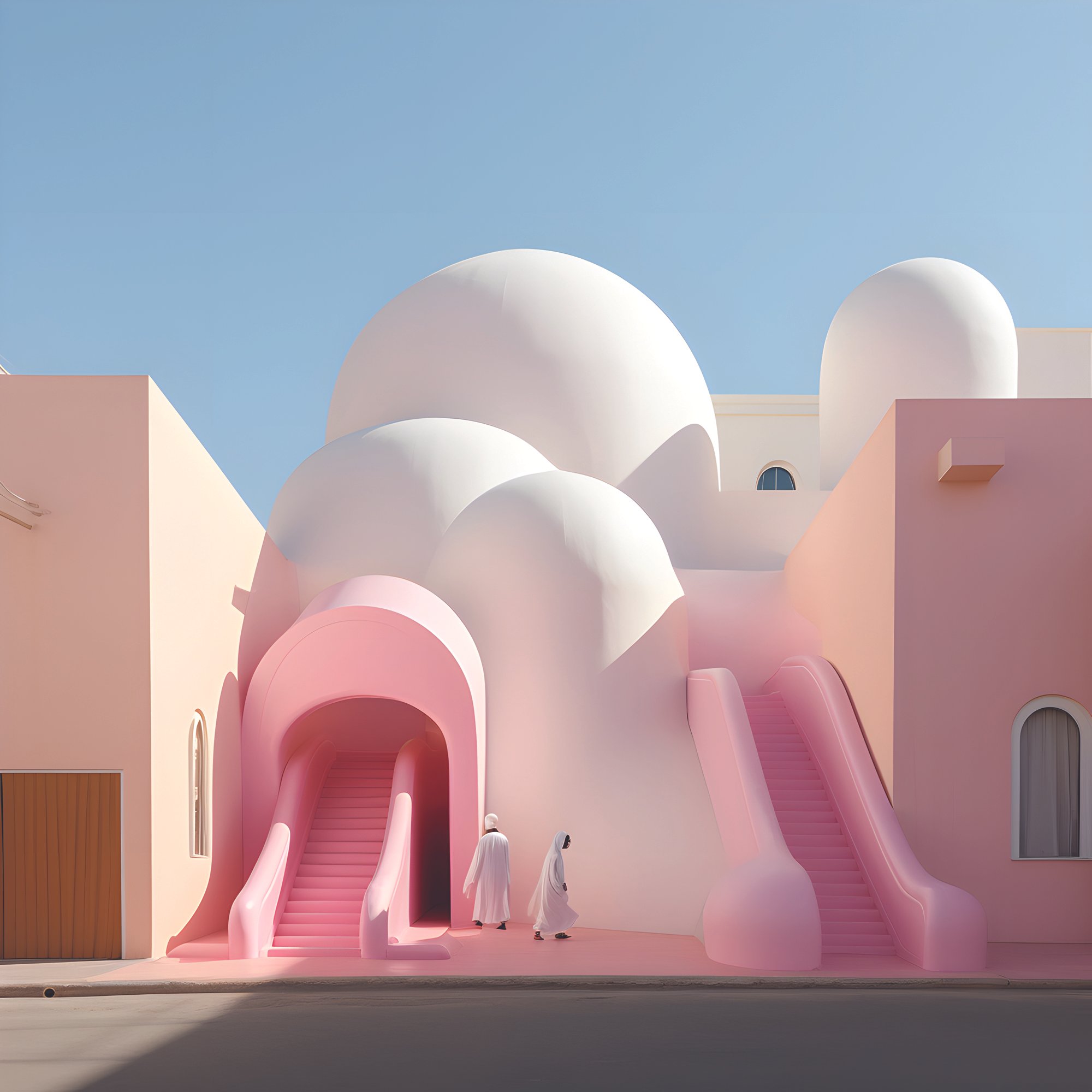
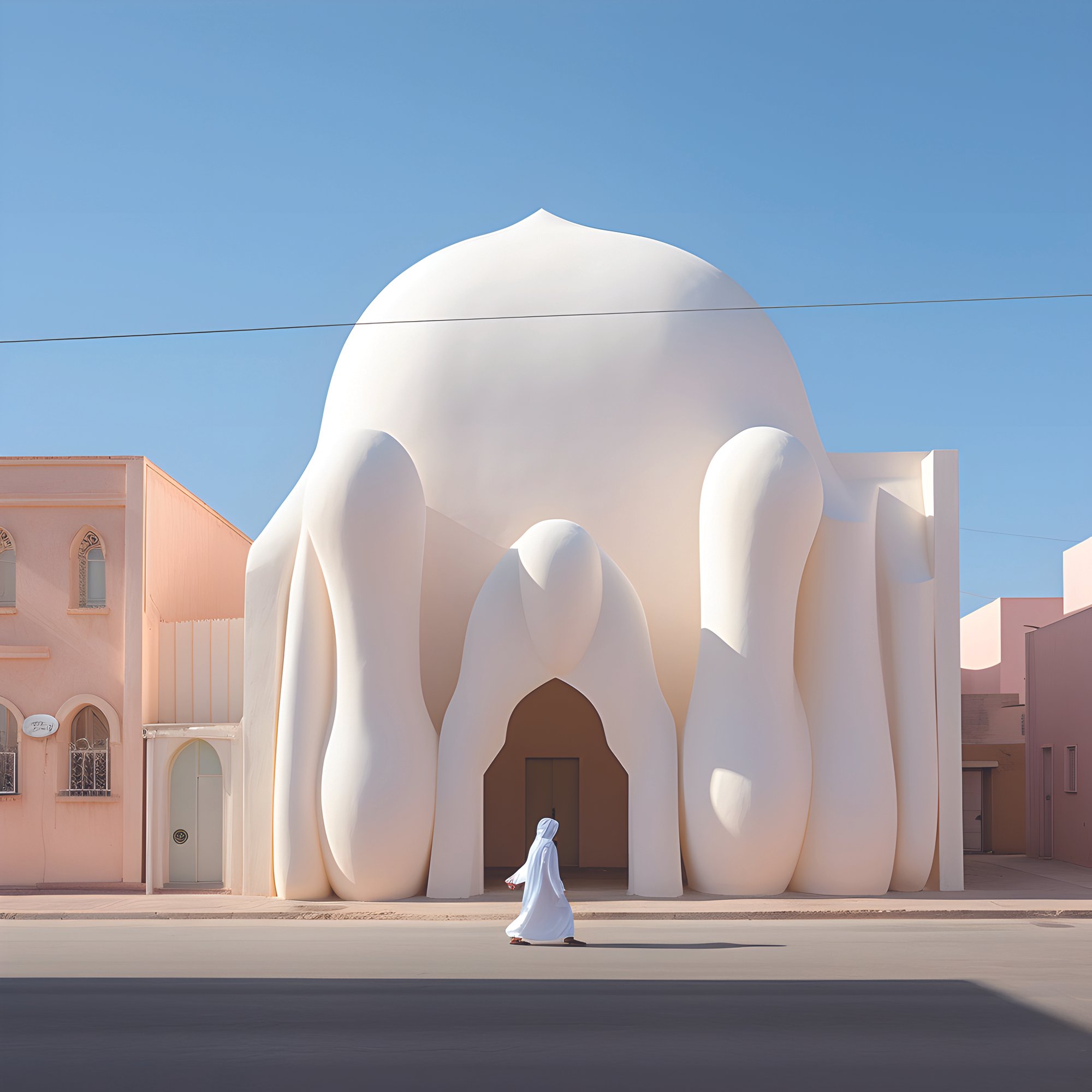
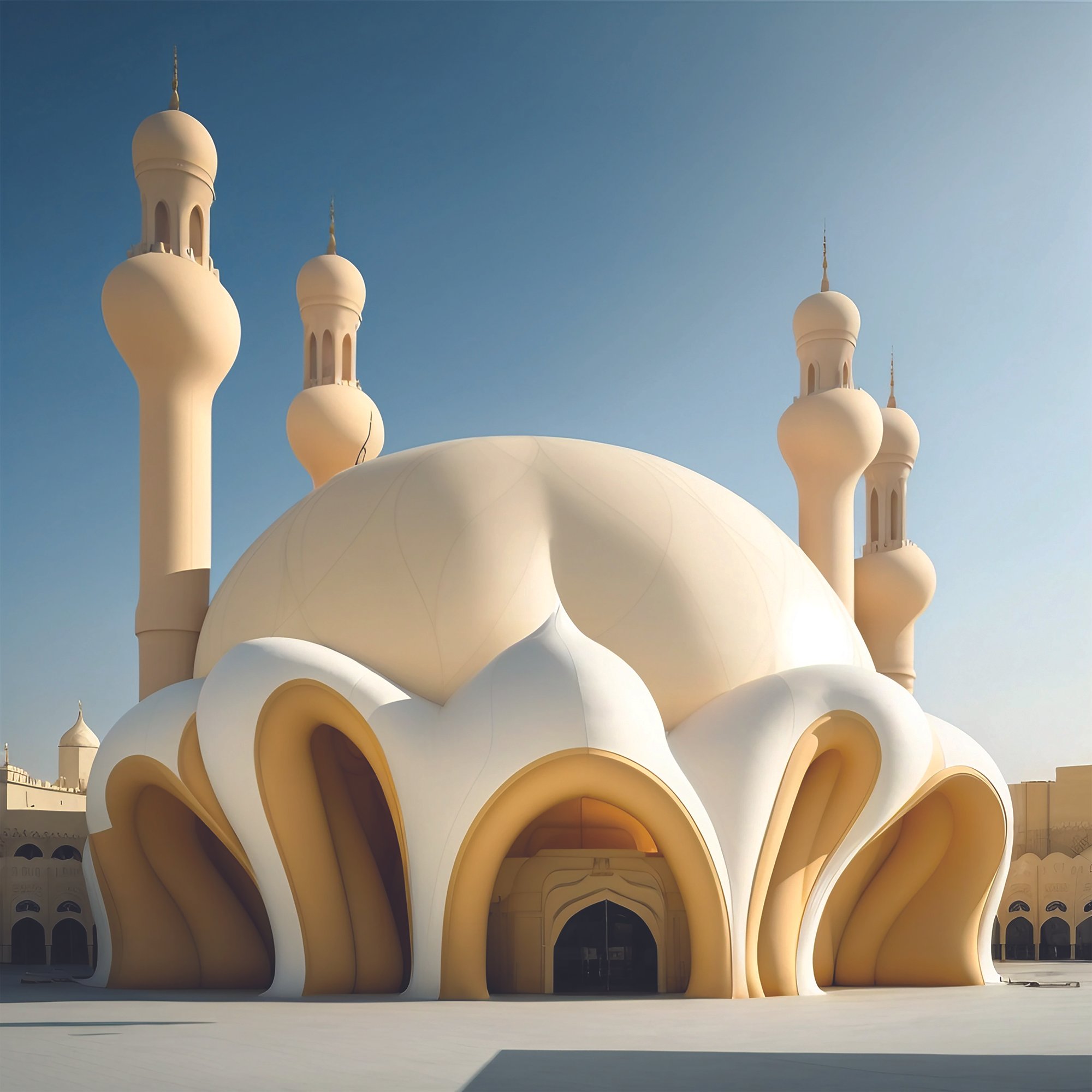
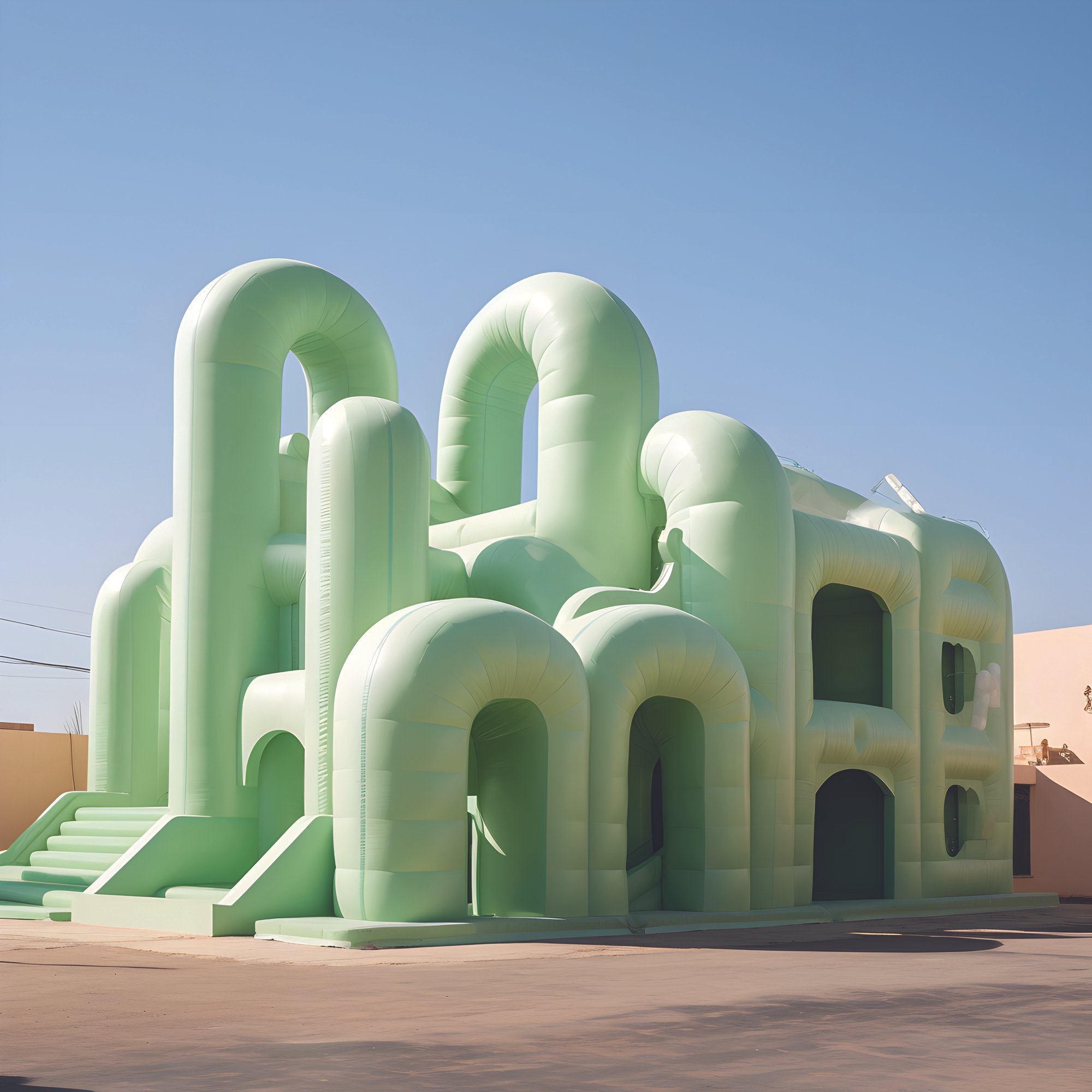
in your opinion, is the art world still resisting digital art?
art fairs and venues tend to differentiate between digital and traditional art. nonetheless, digital art has always been there, unlike today's nft, i am talking about audio/visual arts, which have always been a part of the art world. we need more expert curators in digital art in order to merge the traditional and the technological together. i don’t think digital art will replace traditional art, despite the recent boom. with time, there will be a filter where some digital art will stay and the rest will disappear. i also believe traditional art will become even more valuable. nowadays, you do something artisanal and people are amazed.
why is it important to legitimize digital art?
it’s a form of art and we should embrace it. there’s a person behind the art, who is thinking and creating, so essentially, it’s the same thing.
many artists associate technology with the death of the craft. where do you stand on this?
technology has always been in favor of art. when someone invented the pen, some probably called it unnatural at first, yet it’s something that helped and still helps artists. using technology for art does not negate the fact that it’s art. technology can help us create great things and we shouldn’t go against it.
when creating concept interiors, is the goal to help evolve physical interior design, or to evolve away from it?
sometimes creating images that are farfetched does not necessarily recreate reality, but serves as a tool to experiment and keep our minds thinking in more creative and innovative ways. if we limit ourselves to what is feasible, we will narrow our minds.
you’ve launched a series entitled utopic arabia in which you reimagine arabic landscapes and architecture with the help of cgi. what motivated you to do so?
many years ago, when we first came to dubai, we immediately noticed how unique and dystopian the landscape was. you had empty deserts with one random house that looked like buckingham palace, locals wearing amazing fabric flowing in the wind… it was very inspiring. one day we started playing with ai and cgi and we felt like that would be a unique and appropriate way to tell this story.
beyond the utopic aesthetic, there’s a therapeutic feeling of serenity and lightness in utopic arabia. what is the intention behind the visuals?
we are very inspired by the local rituals: the temples, the pavilions, the clothes, the spirituality, were all a source of inspiration when creating these visuals.
have you ever considered bringing utopic arabia to the physical world?
we would love to do that. a small scale attempt took place in saudi arabia. we created a space for meditation, which suddenly became a little pink mosque. it was amazing. we also collaborated with bulgari on the creation of a huge inflatable flower. seeing that in real life was striking. it was captivating to see the materials used on such a big scale. that you wouldn’t usually see often anywhere. when you see this in person, you feel it’s unreal, as if you were watching digital images.
have you ever considered a similar approach to your interior design?
yes and no. i’m always thinking and questioning ‘who am i as an artist and who am i as an architect’. as an architect i love super clean minimal spaces, and as an artist i’m more playful and whimsical. mixing that would be amazing, but we’d have to find a way to do it, and a client who is willing to go for it as well.
augmented reality is inching closer to our daily lives. apple’s vision pro comes to mind. in your opinion, are people disenchanted with real life?
when you see countries that have the potential to grow, people are usually more excited about life and its possibilities. in the west, people are too comfortable, they have everything, so nothing excites them anymore, and maybe that’s where the need to escape comes from. also, the fact that we can see everything in the world on tiktok makes everything a little less interesting. before, if you wanted to see something, you had to go to that place, now technology has made everything so accessible that we’ve become lazy and bored. nothing seems new anymore. with virtual reality you’re able to see new things mixed with reality, thus adding an interesting layer.
with the surge of cgi and ai, people fear that, eventually, the lines between reality and virtuality will be forever blurred. where do you stand?
we are still so far away from that. years ago, you could notice the difference between cgi and reality. nowadays, it’s more confusing, not because cgi is so realistic, but rather because we use more and more digital imagery in our daily lives. we try to imitate the digital world all the time. for example, instead of using a plan in architecture, you do renders. it makes it easier since clients can understand the design better, yet it also makes people lazy. when you’re doing something technological, and you don’t know how to do it in a traditional way, you’re missing a part of the story. sometimes the traditional way allows for a more intuitive way of thinking.
many artists view ai as a threat. where do you stand and why?
sometimes it does feel like i’m going to be replaced by a computer. however, maybe my future job might not be to create, but rather to be a curator. i don’t think ai will necessarily replace my job as much as it will transform it. we have to embrace it and see what happens. for now, it makes our job easier, and allows us to explore our creativity further.
you have a series entitled sunset landscapes, a collection of reimaginations of natural landscapes. why is humanity so hellbent on recreating nature?
i think all artists want to recreate nature because nature always amazes everyone: the scale of it, the light… it’s beautiful and it always will be. also, doing something that i know doesn’t exist, but could exist is fascinating. it is imagining what the world would have looked like, if i had created it. maybe we are so narcissistic that we want to claim things for ourselves. any artist or architect wants to do something that’s never been done before and to be remembered by history.
interview by ralph arida
